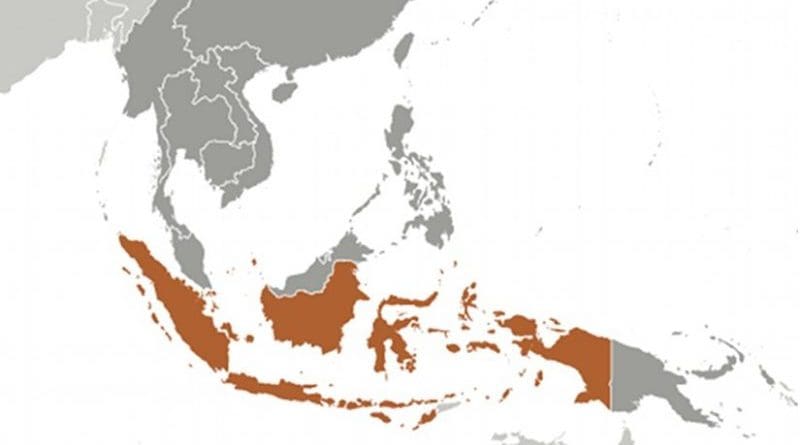China Looms Large As Indonesian Capital Moves To Borneo – Analysis
Indonesia’s announcement that a new capital will be built on Borneo reflects a long desire to move to the tri-country island, which it shares with Malaysia and Brunei. Indonesian governments in the capital Jakarta on the island of Java have been seeking to move to Kalimantan province, which makes up the Indonesian part of Borneo island, ever since the country’s independence in 1945. President Joko Widodo said this week: “The location is very strategic — it’s in the center of Indonesia and close to urban areas.” The relocation is due to start in 2024.
Reasons abound for the move, including the rising sea level and Jakarta’s sinking by about 20 centimeters a year, as well as the decay and overcrowding that is expected in the megacity in the near future. This megacity status, with its business, culture and media mix, brings with it security issues involving pollution, and the moving of the government to another island in the archipelago helps to remedy potential urban-related issues regarding overcrowding and the potential shortage of basic staples.
Indonesia’s president argues that the building of the new capital will help the government contend with Jakarta’s growing issues. Kalimantan province on Borneo already features two large cities — Balikpapan and Samarinda — where international airports, toll roads and seaports operate. A million people are slated to move from Jakarta to construct and manage the new capital.
The idea of moving capitals is not new, but it does reflect a political message. Mustafa Kemal Ataturk made Ankara the capital of the newly independent Turkey in 1923; Pakistan moved its capital from Karachi to Islamabad in the 1960s; Nigeria switched from Lagos to Abuja in 1991; Myanmar moved its government administrative offices to Naypyidaw from Yangon in 2006; and Egypt is building its New Administrative Capital outside of Cairo. Each of these changes reflected a need to concentrate government in one, modern location to help communicate effectively with the outside world.
Another interesting case of a capital city moving is Kazakhstan. In 1998, Kazakhstan moved its capital to a new city, Astana, from Almaty. This year, Kazakh President Nursultan Nazarbayev stepped down after 29 years in power and the government subsequently renamed the capital Nur-Sultan. These moves are reflective of Kazakh society and its “zhuz” system of relationships in terms of “otan” (fatherland) and its respect for Nazarbayev himself and his decades of service to the country. This respect for Nazarbayev is a powerful cultural driver for most parts of Kazakh society.
But what is of interest in Indonesia’s case is the significance of the island of Borneo. Borneo is about two-thirds Indonesian, with the remainder of the island home to the Sultanate of Brunei and the two East Malaysian states of Sabah and Sarawak. Proximity matters.
Moving the capital to Borneo puts the seat of Indonesia’s government squarely at the heart of three key Muslim countries. Indonesia and Malaysia, presiding over multi-ethnic and multi-religious societies, are assertive over political life. Combined with Brunei’s conservativism and energy riches, in addition to the sultanate’s own maritime requirements, this puts the three countries in a potentially better position to cooperate.
Indonesia, Malaysia and Brunei are increasingly cooperating in terms of security, although Brunei’s cooperation is more recent. The relationship now includes components such as high-level visits, education courses, training, and military exercises, along with functional areas of discussion on issues of common interest, such as counterterrorism and maritime security.
The 800-pound elephant in the room is China, whose presence is a factor in terms of its influence. Borneo’s centrality to the South China Sea issue is based on the continuing disputes across this maritime transit zone, which may have an impact when tensions are high. Chinese interest in Malaysia’s Sabah and Sarawak is historical, with Hokkien-speaking communities today having helped to shape local politics, which continues to invite Chinese investment. This is where Indonesia’s capital move and China’s interest mix. Bilateral relations between Indonesia and China have always been complicated by the former’s domestic politics, leading to tensions and accusations of Beijing trying to impact electoral outcomes in both Indonesia and Malaysia by exercising its influence.
All three countries’ relations with China need to be considered when thinking about the new Indonesian capital on Borneo. Geopolitics has a funny way of making such a capital move a central issue in Beijing’s outlook on how best to gain an advantage across the economic, security, political and social domains. This will be a space to watch as Indonesia constructs its new capital.
Overall, more countries will move their capitals, with these decisions being made in response to rising sea levels. Megacities such as Bangkok, Dhaka and Manila are just a few of the capitals at risk due to climate change. But there are other reasons, mostly due to the inability of governments to keep up with demographics and urban capacity requirements. The implications of such moves are that they will present geopolitical opportunities, as we will see on Borneo.

